
An introduction to Primary 5 English Grammar
Moving up to Primary 5, there are additional components which will be tested. In addition to the syllabus from the previous years, the Primary 5 English grammar syllabus also includes :
- Past and present perfect tense
- Past and present perfect continuous tense
- Verb patterns
With the Primary 5 Paper 2 examinations coming up in October, let’s look at 5 common mistakes pupils make in the Primary 5 English Grammar MCQ section.
Common mistake 1
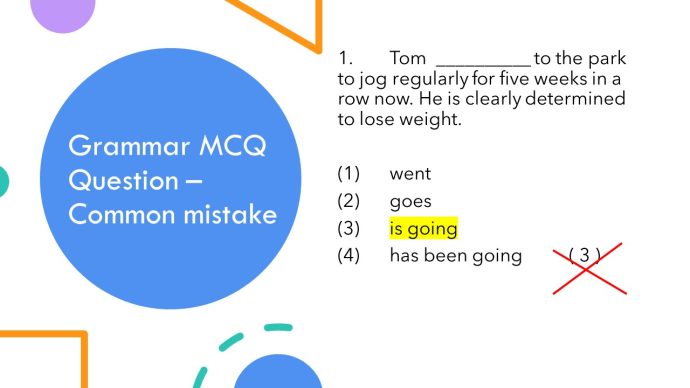
It is common for pupils to note the keyword now in the question and immediately assume that the answer should be in the present continuous tense which is used for an activity that is happening right now.
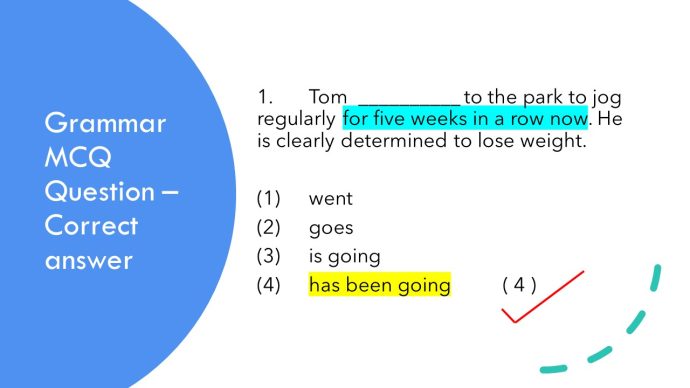
However, the present continuous tense does not fully answer the question. The answers for Primary 5 English grammar MCQ questions should be specific (clear and exact).
In this case, Tom started jogging from 5 weeks ago until now. This indicates an activity that started in the past and is still continuing till now.
As such, using the present perfect continuous tense is the most accurate option.
Common Mistake 2

It is common for pupils to note the keyword to and immediately select the base form of the verb as the answer.
This is because the verb pattern of to-infinitive is commonly learnt and tested between Primary 2 to 4.

For Primary 5 grammar, there are additional verb patterns that pupils should be aware of.
Looked forward to means to be excited that something was going to happen.
Since something was going to happen, the action was ongoing then which means the answer should be in the continuous form (-ing).
Common Mistake 3
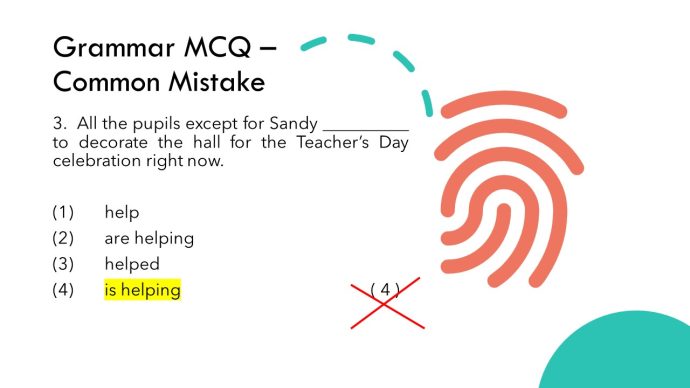
This is one of the most common mistakes that pupils generally make. They often focus on the subject nearest to the blank and base the answer on that.
In this case, pupils often identify Sandy as the keyword and select the answer which has a singular verb.
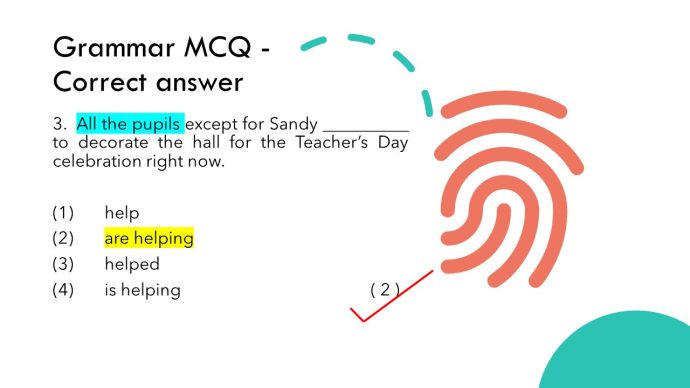
The question is referring to those who are decorating the hall. In this case, it refers to all the pupils, not Sandy.
Conjunctions like except for are not considered part of the main information in the sentence. Rather, they are considered as additional information which serve as distractors to test a pupil’s grammatical knowledge.
Common Mistake 4
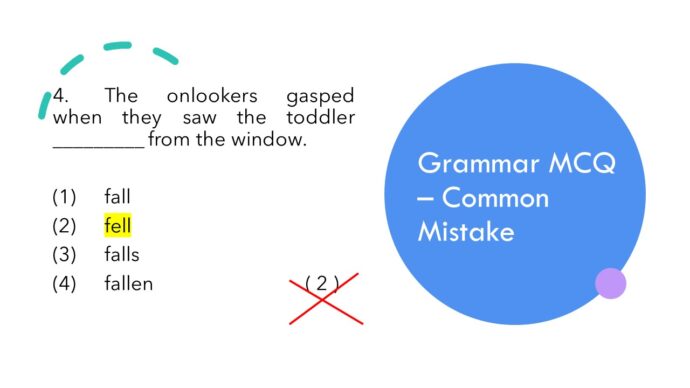
Another common mistake that pupils make is to assume that the answer is in the past tense since the sentence is written in the past tense.
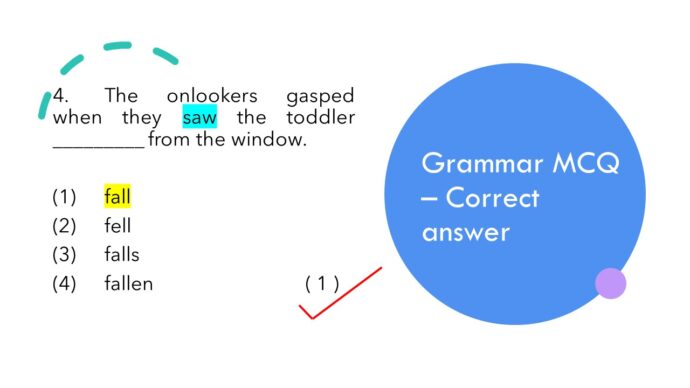
This is another commonly tested verb pattern at the Primary 5 level => Verbs such as see, hear, watched + object + infinitive
In this case, we use the infinitive fall (the base form) to emphasize the whole event or action that the onlookers saw.
Common Mistake 5
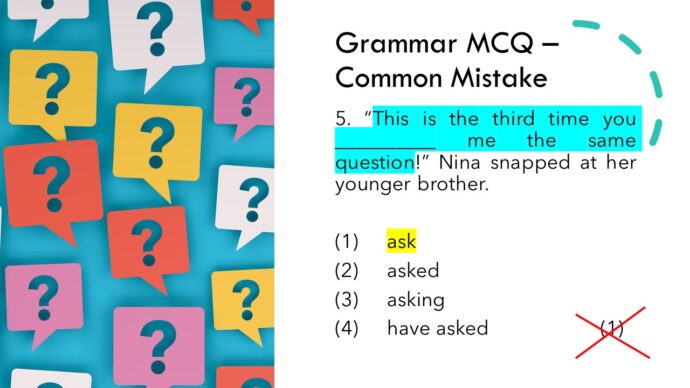
Some pupils do assume that the answer should be in the present tense since the blank is in a line of speech which is typically written in the present tense.
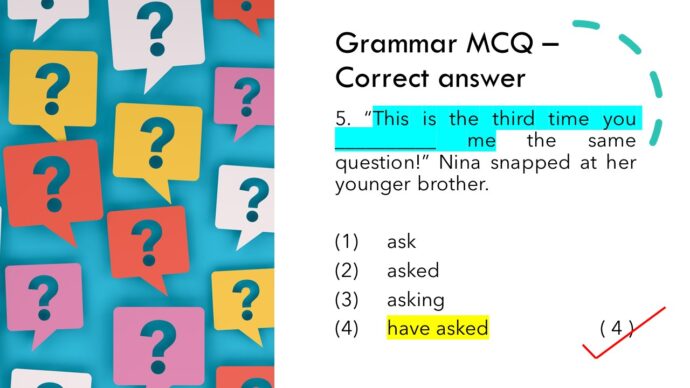
It is important to note that the action is ongoing as Nina’s brother was continuing to ask her the question then.
This means that the answer should be in the present perfect tense to show an action that started in the past and is continuing.
Our English and Writing classes covers both writing and the level’s English syllabus in a balanced format for every lesson. Find out more about our Y2023 schedule and tryout lessons.



